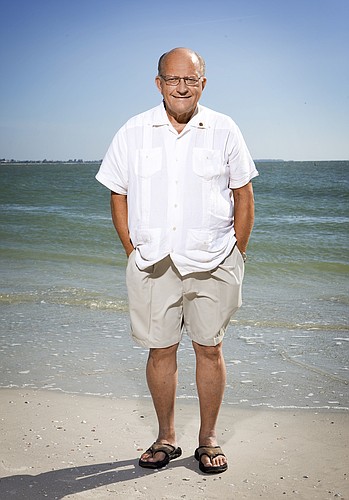The Thrashers, Atlanta's professional hockey team, had a water problem.
If you're going to play hockey, you've got to have ice. And for the Thrashers, getting quality ice onto the floor at Philips Arena was expensive — locate, ship, re-freeze, etc.
Terry Janssen showed the Thrashers a nearby source of water that gave them ten times more than they needed.
The source was the Arena's own air conditioner.
Examples like these show exactly how Janssen, chief executive officer of EcoTech Water LLC, can generate $3 million a year in revenue with a company that has just eight employees.
For example, take the company's work for the U.S. Department of the Treasury. After installing systems that would make the department's headquarters a zero-water building, enabling them to turn off their water mains completely, the savings could surpass $100,000 annually.
EcoTech's business model is built on a full line of water-saving products: Waterless urinals. Faucet aerators. Dehumidifier-run water coolers. Each was designed by Janssen, who attributes his innovative skill to the necessities of his younger days growing up on a farm in Nebraska.
“If you didn't know how to make things and fix things, you didn't eat,” he says.
Janssen took a career path through insurance, mortgage banking, and real estate development before entering the green tech marketplace. At one point, he even considered himself retired.
But exposure to details about the nation's water supply and energy situation motivated him to get involved with technology.
His first invention used heat energy from public water mains — which typically deliver water at around 53 degrees — to cool and heat homes in northern cities.
But Janssen knew early on that to make green technology marketable, it had to be cost-effective. It's what forced him to pay attention to the concept of payback periods.
The geothermal work he did, for instance, could take 12 to 15 years to save the consumer enough money to break even on the investment. That made retrofitting existing homes a tough sell since most people do not stay in one house that long.
In contrast, Janssen found that water-saving technology would be able to pay for itself within 12 to 18 months of installation in many cases. That sort of thing can build a business -- and a business it did build.
EcoTech opened its doors in 2003, and has quickly grown into a company with significant production and international sales, serving countries such as the United Arab Emirates, Malaysia, Singapore, Mexico and Canada.
Even after that growth, EcoTech maintains a high ceiling going forward, since Janssen has successfully managed his intellectual property, like the patent on his waterless urinal that is designed to operate without replacing parts for 10 years.
Now the challenge is growing in a way that fits with Janssen's mission.
One area is demand response. In the case of producing the porcelain base of the waterless urinal, Janssen says he would have preferred staying on American soil. But the numbers have made that simply impossible in some cases. (Think $70 abroad versus $700 domestically for per unit costs.)
Those types of dilemmas have prevented EcoTech from exploding, as factors like production details and quality standards are making some potential deals that would provide him access to more capital difficult to accept.
More capital would certainly help, as each of Janssen's patent applications can cost up to $150,000, and take nine years to process. But while the market seems to be there, Janssen says, “I want to make sure it's run right.”
In the meantime, he expects the work of companies like his to become even more important as resource crises loom. He cites aquifers, some of which have been severely overdrawn in recent years, or the cities in China where access to drinking water is scarce to non-existent.And Hillsborough residents likely don't need to be reminded about the headaches of desalination processes.
But instead of just talking about pending resource issues, Janssen is also doing. His next target: improving designs on a zero-water, completely “touch-less” restroom facility.
It may sound complicated. In fact, a lot of what EcoTech does sounds like you'd need an engineering background to understand it. But simplicity keeps EcoTech growing. “It's not necessarily rocket science,” Janssen insists.
If only building your own multimillion-dollar technology company were so easy.






